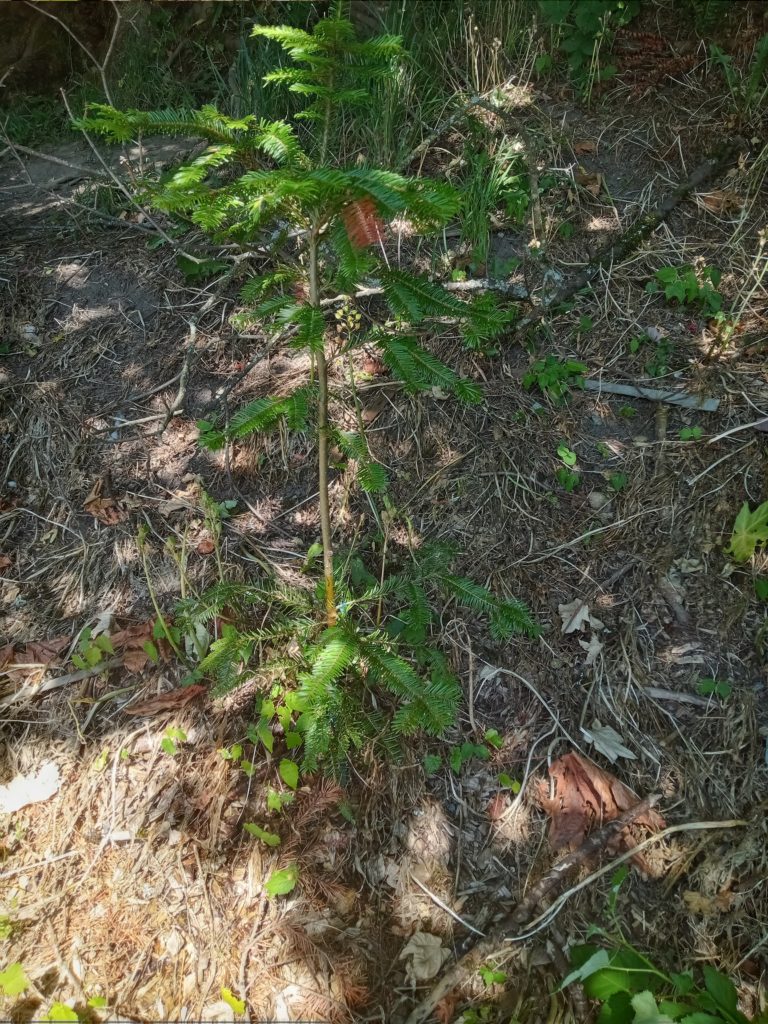It’s 5:40 a.m. and 79 degrees outside. I’m up early, so I can go on a walk with my kids before it gets too hot to be out. At around 6 p.m. yesterday evening—otherwise known as 98 degrees Fahrenheit—I left the living room where my family was gathered, went to my bedroom, and closed the door. Then I sat on my bed and wept.
The best way to describe how I’m feeling right now is like the other shoe is dropping. I have known this was coming—not just intellectually, but in a deeper part of me. I could feel it. For decades, but especially since 2009, summers have been … different. Warmer. Drier. Longer. Other people’s comments—“Strange weather we’re having, huh?” or “Wow, what a great summer!”—would confuse me. Weren’t they feeling what I was feeling? Wasn’t it obvious that this was ominous rather than amazing?
As the intensity of the crisis has increased, my motivation—or rather, my ability—to respond has decreased. I can’t face the deeply disturbing changes or the misery they are causing, so I turn away. I retreat into my escapes—basketball and books—and obsess to the point of paralysis about my personal choices. I wash and reuse disposable plastic bags and then wonder if using the extra water is better or worse than throwing away plastic. I wander the grocery aisles searching for food items that aren’t wrapped in plastic, don’t contain palm oil, weren’t shipped from thousands of miles away, and on and on, until I can’t settle on a single food. Yesterday, I found myself arguing with my spouse over the carbon impact of buying a fan.
Meanwhile, our state continues to build highways, and corporations continue to destroy our shared planet with impunity.
I don’t have control over that. So I channel my energy into things I can control, like planning my family’s entire Saturday around four hours of bus travel, so we can attend my nibling’s birthday party in Tacoma without renting a Zipcar.
I don’t know what to do about the fact that our rivers are overheating, killing salmon and starving Orcas—or the incredible reality that the Olympic rainforest now has dry spells. So, I haul buckets of water to young trees my family has planted at various planting events around our neighborhood. One summer, during a particularly long dry spell, my kids and I spent hours, day after day, hauling water from the faucet in front of their elementary school to the mini-forest where we had planted trees a couple of years earlier—a good quarter mile each way. (We eventually figured out a more effective—and less strenuous—guerrilla watering strategy, but, much like Smooth Jazz‘s identity, it shall remain forever secret.)
These days, we are “forest stewards” (a bit of an inflated title, to be sure) at a park about five blocks from our home. On Thursday, in an attempt to repeat our previous baby-tree-preservation strategy, I used our hose to fill two buckets and carried them over to the park. My plan was to water a couple of the newer trees. But when I got to the planted area and saw how dry everything was, it felt stupid and pointless to be standing there with two not-quite-full buckets. What was a few gallons of water going to do against 110-degree heat? Who was I to pick and choose which of these distressed plants deserved a drink? What was even the point?
I told myself that it was better to do something than nothing as I dumped a bucket on sweet Shirley, the grand fir we named for my friend C’s mother.

The next day, I returned with two more buckets, repeating, like a mantra, “It’s better to do something than nothing,” during the difficult walk to the park, and again as I walked by all of the dry, desperate plants I was not watering.
But is it? Was what I chose to do helpful, or did it just make me feel better? (To be honest, I’m becoming skeptical about the effectiveness of tree-planting efforts in general. But that’s a post for another time.) Did the watering just give me something to focus on, in the same way not driving gives me something to focus on—something other than what I know to be true: I am part of a culture that is making survival impossible for many of the species we share the planet with, including our own.
All over the world, humans are dying because of climate change. In my own city, people are working in dangerous conditions and suffocating in overheated apartments—if they are fortunate enough to have an apartment. Thousands are living without shelter, exposed to the extreme temperatures with few options for relief. The smoke will be here soon, and those of us who are able will again find ourselves hiding inside while others suffer and even die.
I don’t know what to do about any of it. I make donations to resistance efforts and mutual aid funds, invite neighbors to cool off in our downstairs.
Much more is required of me. But what?
